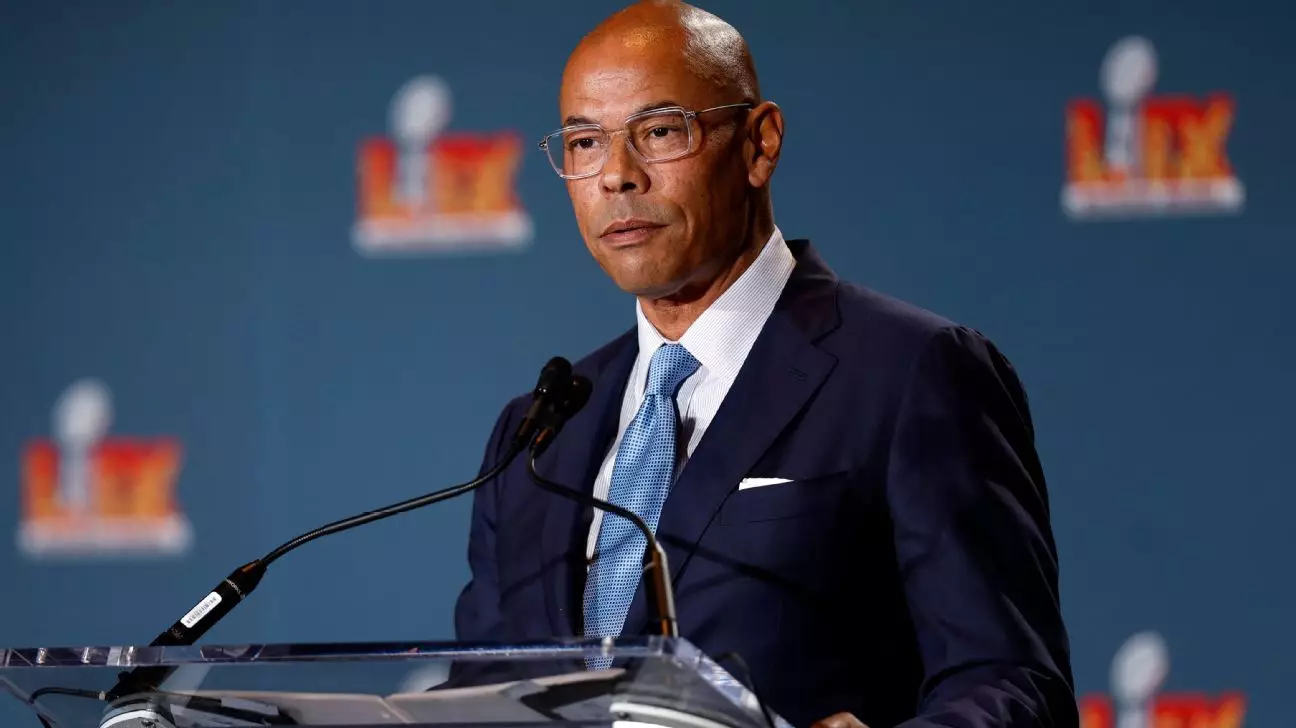In the complex landscape of professional sports, leadership roles are often perceived as bastions of integrity and dedication to athletes’ welfare. However, beneath this polished exterior lies a fraught reality marked by conflicts of interest, hidden agendas, and questionable ethics. The recent resignation of Lloyd Howell Jr. from his prestigious position as NFL Players Association executive director exposes the fragility of trust in leadership roles that are supposed to champion fairness and transparency. Howell’s simultaneous involvement with The Carlyle Group—a firm seeking minority stakes in NFL franchises—raises disturbing questions about the integrity of decision-making at the highest levels of sports governance.
This situation exemplifies how personal financial interests, if left unchecked, can erode the very foundation of union leadership. The fact that Howell held a part-time consulting role at Carlyle while serving as the NFLPA’s top representative suggests a fundamental breach of presumed impartiality. When union leaders have entrenched ties to outside financial entities that might benefit from league decisions, the perception of bias becomes an insurmountable obstacle to genuine trust. Sports organizations, inherently intertwined with corporate interests, must inevitably confront this challenge: how to maintain independence amid overlapping financial relationships.
Moreover, the union’s internal culture seems to lack sufficient mechanisms for accountability and conflict resolution. Howell’s refusal to step down amid concerns about conflict of interest reveals a disconcerting disregard for ethical standards, exposing a complacency that many elite institutions harbor when navigating the murky waters of corporate influence. The union’s leadership, entrusted with safeguarding players’ rights, must realize that appearances of impropriety can be as damaging as actual misconduct. Transparency isn’t merely a virtue but a necessity for maintaining credibility in an era where public trust is fragile and scrutiny is relentless.
Inadequate Oversight and the Erosion of Credibility
The NFLPA’s tumultuous recent history underscores systemic flaws within its governance structures. The FBI’s ongoing investigation into the financial dealings related to the group-licensing firm OneTeam Partners reveals a broader pattern of questionable practices and opacity. When major sports unions are embroiled in legal and ethical controversies, the very legitimacy of their leadership is called into question. The situation with Howell’s leadership—marked by a secretive arbitration decision and undisclosed legal disputes—further accentuates a troubling disconnect between public transparency and internal confidentiality.
This opacity fuels skepticism among players and stakeholders who rely on their union to negotiate fair terms and protect their interests. It also highlights how insularity and a failure to uphold strict ethical standards can compromise the union’s moral authority. Sports organizations, especially those in a position of influence like the NFLPA, must cultivate a culture of rigorous oversight, where conflicts of interest are proactively managed, and transparency is prioritized over secrecy. Only through these measures can they regain, or at least preserve, the trust of their members and the public.
Furthermore, Howell’s resignation comes after revelations of a past lawsuit claiming sexual discrimination and retaliation during his time at Booz Allen Hamilton. Such allegations, combined with undisclosed legal issues and FBI investigations, paint a portrait of leadership that is deeply flawed. If union leaders are to fulfill their promise of advocating for athletes’ rights, they must be held to higher standards—standards that demand integrity, accountability, and the willingness to confront uncomfortable truths rather than brush them aside.
The Critical Need for Reform and Ethical Leadership
As the scandal unfolds, it becomes evident that reform within sports unions is urgently needed. A true center-ground liberal philosophy calls for balancing entrepreneurial freedom with rigorous oversight—championing fairness while remaining vigilant against corruption. Union leadership must evolve beyond complacency, embracing policies that safeguard against conflicts of interest and promote transparency.
Implementing stringent vetting processes for union executives, mandating disclosures of outside affiliations, and fostering an environment where whistleblowers are protected could serve as fundamental steps. Building such safeguards would not only restore credibility but also reflect a genuine commitment to ethics over expediency. Instead of opaque confidentiality agreements and behind-the-scenes legal maneuvers, unions should prioritize openness, embracing accountability as a core value.
Finally, this case underscores an important lesson: power in sports organizations must be exercised responsibly, with an unwavering focus on integrity. When union leaders are entangled with corporate interests or remain silent about their conflicts, they undermine the very cause they claim to serve—athletes and fans alike. Only through honest self-examination, reform, and an unwavering dedication to ethical principles can sports unions hope to reclaim their moral authority and truly serve the interests of those they represent.


Leave a Reply